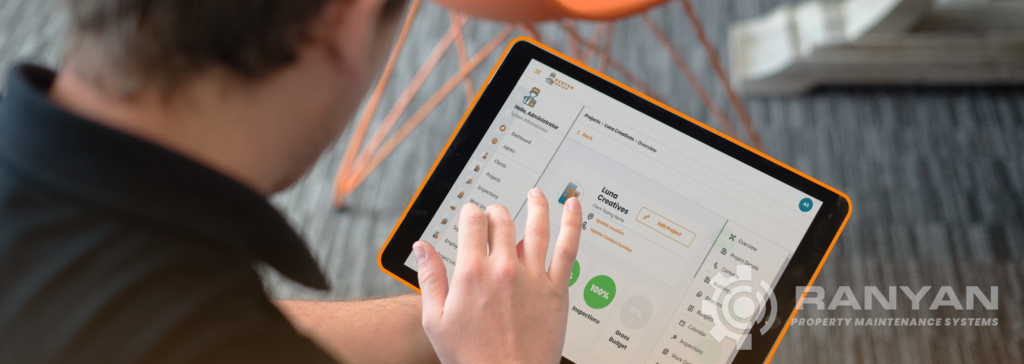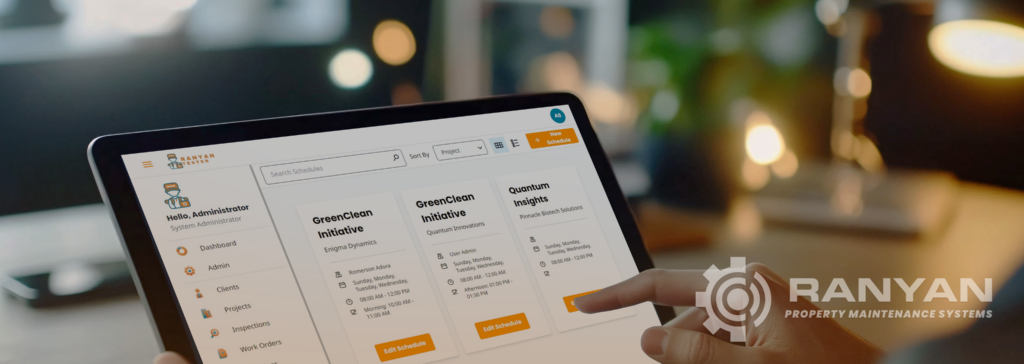Running a successful janitorial business means more than just providing excellent cleaning services. It requires clear objectives, efficient processes, and continuous growth. As we step into 2025, now is the perfect time to set the foundation for a successful year by creating SMART goals.
SMART goals are Specific, Measurable, Achievable, Relevant, and Time-bound. They provide clarity and direction, helping you focus your efforts and track your progress. Let’s dive into how to set SMART goals tailored to your janitorial business and the tools that can help you achieve them.
Why SMART Goals Matter

Setting vague goals like “I want to grow my business” or “I want to be more organized” often leads to frustration. These goals lack clarity and make it difficult to measure success. SMART goals, on the other hand, break your objectives into actionable steps. This approach increases your chances of success by giving you a clear roadmap.
For janitorial business owners, SMART goals can:
- Improve efficiency by targeting specific pain points.
- Help you prioritize tasks and allocate resources effectively.
- Track progress to celebrate wins and identify areas for improvement.
- Align your team with a shared vision for the business.
Step-by-Step Guide to Setting SMART Goals

Here’s how you can create SMART goals for your janitorial business in 2025:
1. Be Specific
Start by clearly defining what you want to achieve. A specific goal answers questions like: Who is involved? What do I want to accomplish? Where will it take place?
Example: Instead of saying, “I want to improve scheduling,” set a goal like, “I want to reduce scheduling conflicts by implementing scheduling software for janitorial businesses.”
2. Make It Measurable
A measurable goal helps you track progress and stay motivated. Include metrics or criteria to evaluate success.
Example: “Reduce scheduling conflicts by 50% within the first three months of using cleaning business software.”
3. Ensure It’s Achievable
While it’s great to aim high, your goals should be realistic. Consider your resources, team capacity, and timeline.
Example: If you currently manage 20 clients, aiming to increase to 100 clients in three months may be unrealistic. A better goal might be, “Increase client base by 20% in six months.”
4. Keep It Relevant
Your goals should align with your business’s overall vision and priorities. Focus on areas that will have the biggest impact.
Example: If paperwork is taking too much time, a relevant goal might be, “Reduce janitorial business paperwork by 30% by digitizing employee records and task checklists.”
5. Set a Timeframe
A time-bound goal creates urgency and keeps you accountable. Deadlines help you stay focused and measure progress effectively.
Example: “Implement a punch tracker system to improve timekeeping accuracy by March 31, 2025.”
SMART Goal Examples for Janitorial Businesses

To give you a head start, here are some SMART goals tailored to common challenges in the janitorial industry:
- Goal 1: “Streamline scheduling processes by adopting software for commercial cleaning scheduling by the end of Q1 2025, reducing scheduling errors by 40%.”
- Goal 2: “Improve employee accountability by implementing a face recognition timekeeping system in all locations within six months.”
- Goal 3: “Increase client satisfaction scores by 15% by creating and using site checklists for all cleaning jobs by June 2025.”
- Goal 4: “Eliminate paper-based processes and reduce janitorial business paperwork by 50% by digitizing employee records and work orders by December 2025.”
Tools to Help You Achieve Your SMART Goals

Achieving SMART goals becomes much easier when you have the right tools in place. For janitorial businesses, software solutions are invaluable for streamlining operations, improving communication, and maintaining accountability. Here are some features to look for:
Customizable Setup
A flexible software platform allows you to tailor features like work orders, inspections, and task checklists to fit your business needs. This ensures that the system works seamlessly with your existing processes.
Scheduling Software for Janitorial Businesses
Manual scheduling is time-consuming and prone to mistakes. Scheduling software simplifies the process by automating assignments, sending reminders, and preventing overlaps. This not only saves time but also improves team efficiency.
Timekeeping with Punch Tracking
Accurate time tracking is essential for payroll and accountability. A punch tracker ensures employees clock in and out at the correct location, giving you peace of mind and reducing disputes.
Site Checklists
Task checklists ensure consistency and quality across all job sites. Digital checklists make it easy to assign tasks, track progress, and provide real-time updates.
Employee Records
Managing employee details, certifications, and performance reviews can be overwhelming. A centralized system keeps everything organized and accessible, helping you stay compliant and make informed decisions.
Face Recognition Technology
For added security and accountability, face recognition technology confirms employee identity during time punches. This feature is especially valuable for businesses with multiple locations.
Benefits of Using Software to Support Your Goals

Integrating software into your business operations offers several advantages:
- Increased Efficiency: Automate repetitive tasks like scheduling and time tracking, freeing up time for more important responsibilities.
- Improved Accuracy: Reduce errors in scheduling, payroll, and task assignments.
- Enhanced Accountability: Track employee performance and ensure tasks are completed on time.
- Better Client Satisfaction: Consistent service and transparent communication build trust with clients.
- Scalability: As your business grows, software can adapt to handle increased demands.
Tips for Success in 2025

Setting SMART goals is just the beginning. To ensure success, follow these additional tips:
Communicate Goals with Your Team: Share your objectives with your employees and explain how they align with the business’s vision. Involve them in the process to foster buy-in and accountability.
Monitor Progress Regularly: Set up checkpoints to review progress and make adjustments as needed. Use reports and analytics from your software to gain insights.
Celebrate Wins: Recognize and reward achievements, no matter how small. Celebrating milestones keeps your team motivated.
Stay Flexible: Sometimes, unexpected challenges arise. Be prepared to adapt your goals and strategies to stay on track.
Real-Life Success Stories
Case Study: Simplifying Scheduling
A mid-sized janitorial business struggled with frequent scheduling conflicts, leading to missed jobs and frustrated clients. By adopting scheduling software for janitorial businesses, they reduced conflicts by 50% within three months. Employees appreciated the clarity, and client satisfaction improved significantly.
Case Study: Reducing Paperwork
A small cleaning company spent hours each week managing employee records and task assignments manually. By switching to a digital system, they cut administrative time in half and used the saved hours to focus on client acquisition. Within a year, their client base grew by 20%.
Take Action: Start 2025 on the Right Foot
Setting SMART goals can transform your janitorial business, but the right tools make all the difference. Software designed for janitorial businesses simplifies scheduling, streamlines tasks, and keeps your team organized. Whether you’re struggling with outdated processes or looking to scale your operations, now is the time to take action.
Don’t miss out—schedule your free demo today and start 2025 strong.
See how technology can help you achieve your goals and set your business up for long-term success.







